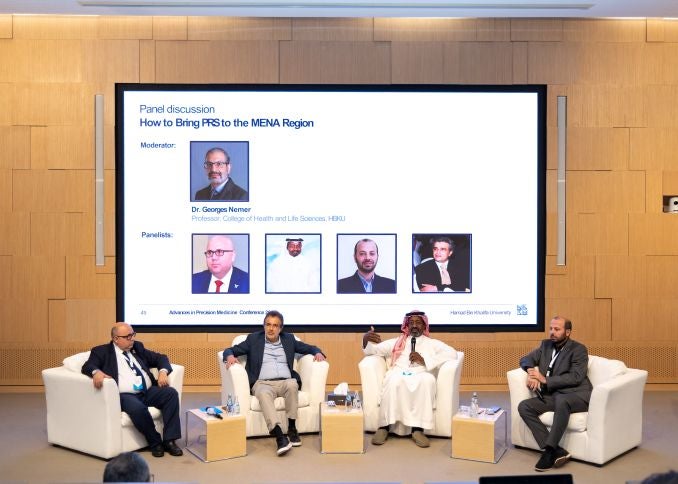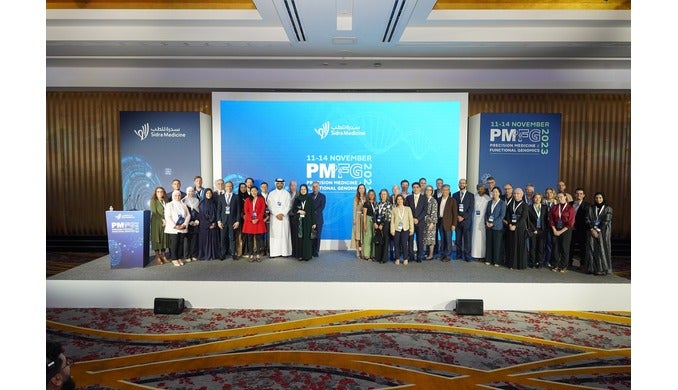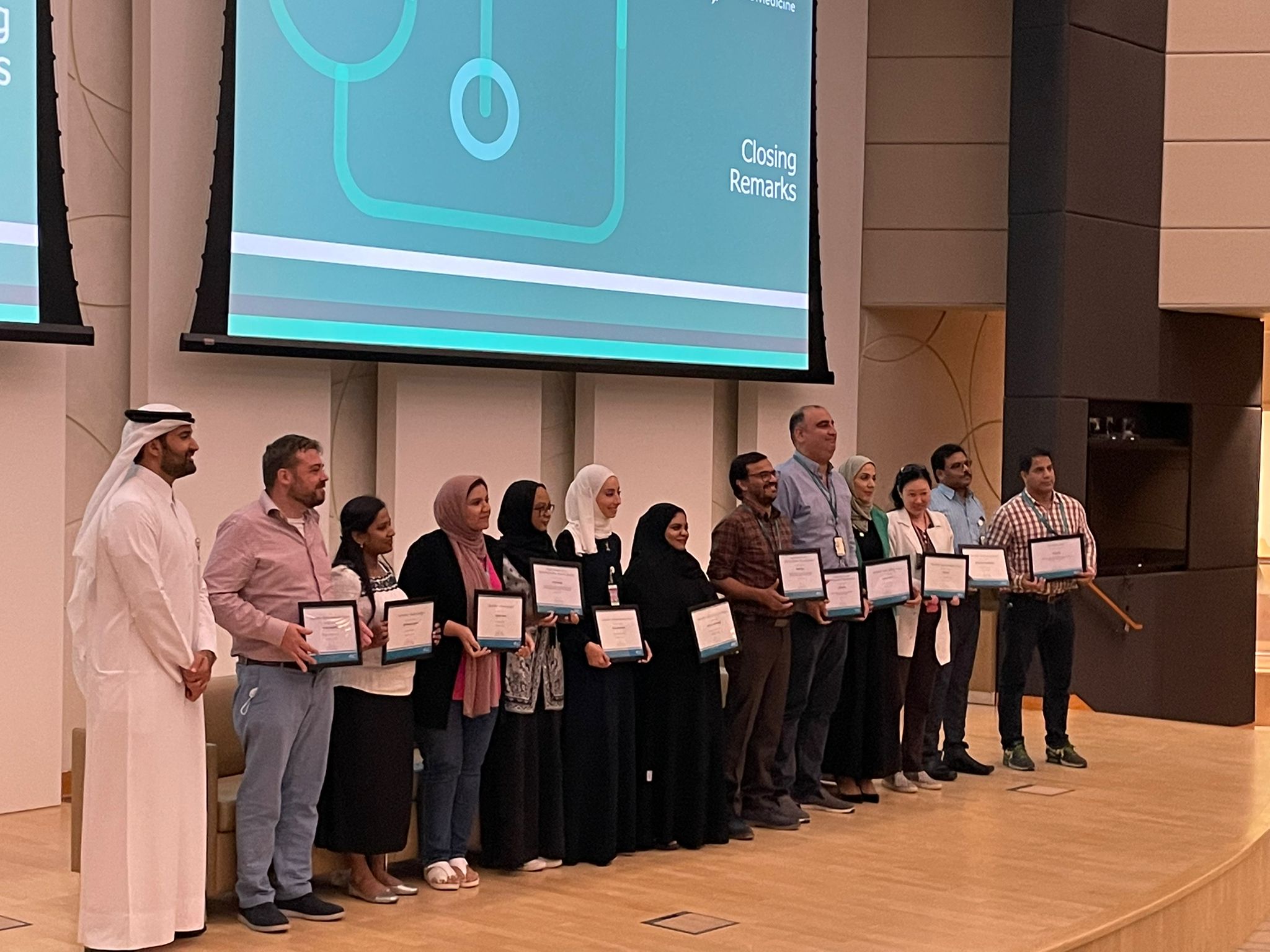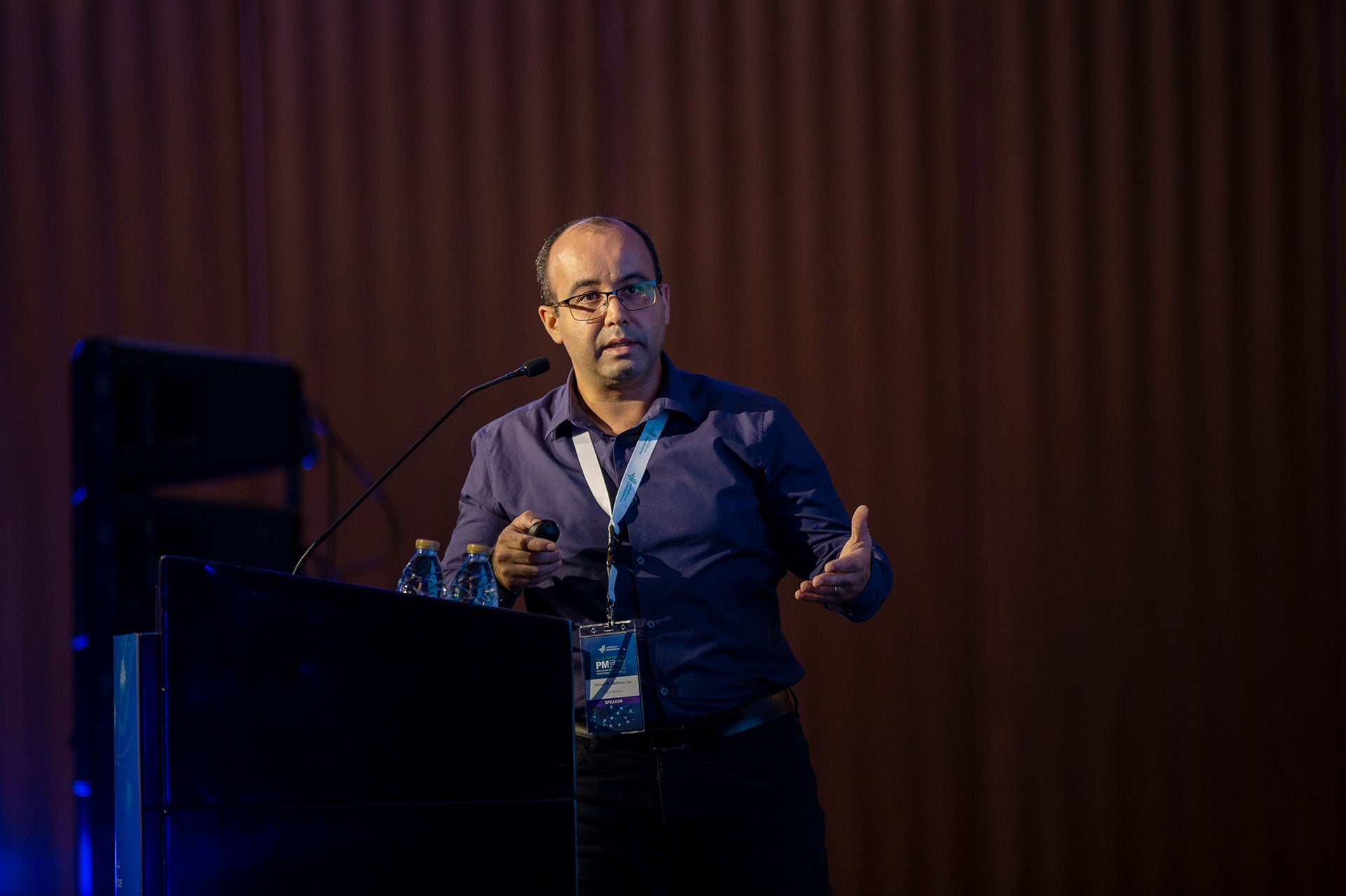Graduates of the College of Health and Life Sciences explore novel solutions to enter uncharted territory.
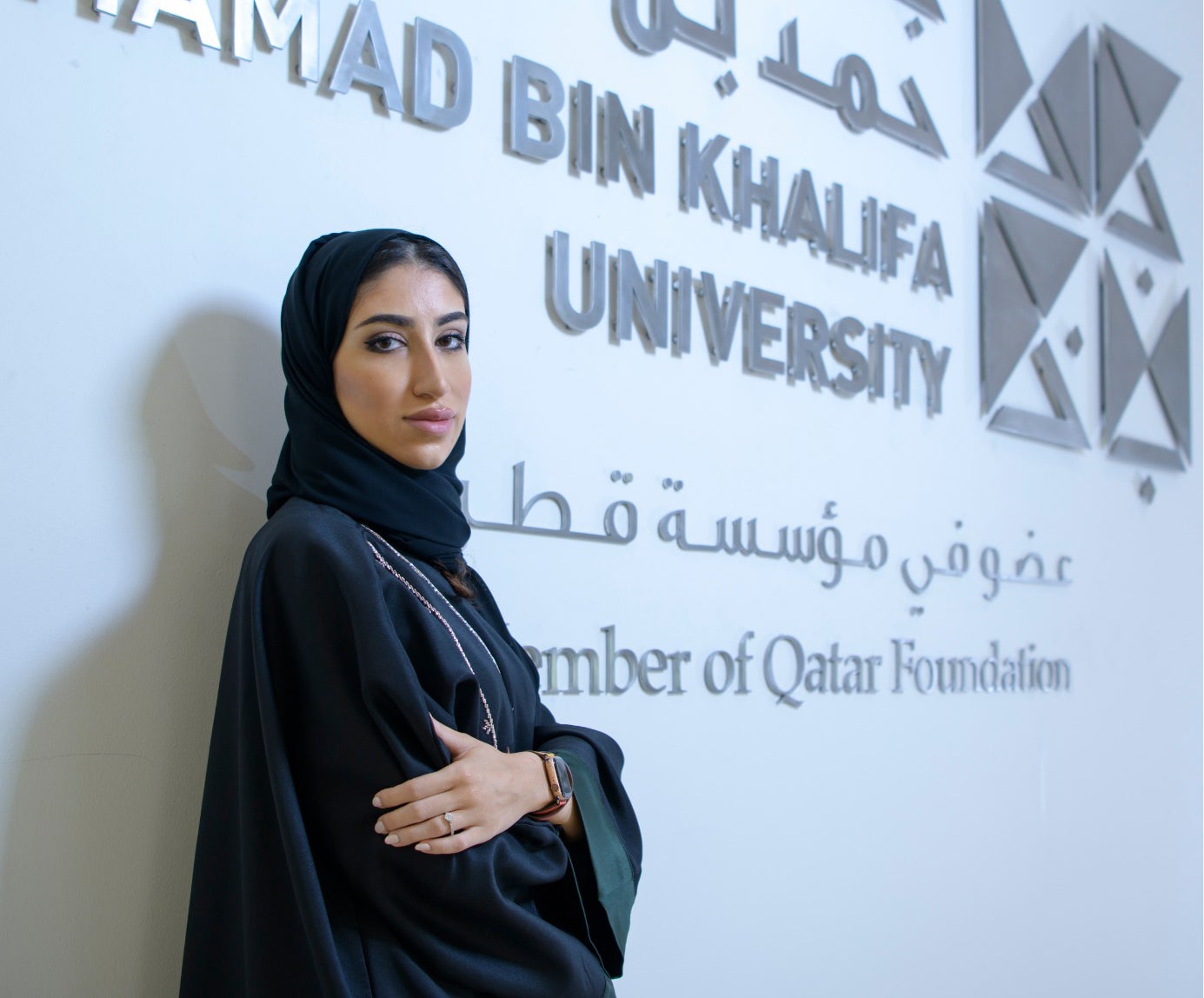
With evident ease, Sara Al-Tamimi dons her laboratory coat and slips on a blue glove, taking special care not to tear it apart as she does so.
Al-Tamimi, who graduated from the College of Health and Life Sciences’ Master of Science in Biological and Biomedical Sciences program this past May, had committed to specialized breast cancer research for 24 months. Like the distinct group of people around the world who have opted for the field of research as a permanent or temporary occupation, Al-Tamimi is in quest of possible answers to crucial questions.
“My thesis’ work was conducted in-vitro by using metallic nanoparticles, namely silver and copper, to induce anti-cancer activity among breast cancer cells,” she said. “There’s a relative gap of knowledge in this area, and we’re only beginning to address it.”
Her research intertwines two fundamental aspects of research -- novelty and targeted therapy. The research, she believes, is thus far showing a lot of promise.
“My studies are highly targeted and predominantly aim to explore solutions while minimizing the serious side effects that are typically associated with more traditional cancer treatments. It is initially finding high levels of toxicity against breast cancer cells followed by less toxicity on normal breast cells,” she said.
According to the Qatar National Cancer Registry, the risk of women in the population developing breast cancer is 56 in 100,000. Despite having over an 80 percent chance of recovery, according to the Ministry of Public Health statistics, the road ahead is ridden with challenges.
“Breast cancer has been long classified as one of the most serious health challenges of our time,” she said. “These challenges can manifest in the poor prognosis of certain types of breast cancer, and the lack of availability of efficient treatment for advanced and metastasized cancer.”
“The field is moving towards more selective therapeutic approaches with fewer side effects. Research in this domain aims to help patients not only get treatment, but also to mitigate side effects, increase survival rates, and reduce relapse risk. The field is in a state of constant evolution and development to reach this ambitious goal.”
Targeted therapy, sometimes also known as molecularly targeted therapy, is rapidly making its way as the go-to method for cancer medical treatment. It works by blocking the growth of cancer cells and interfering with specifically identified molecules that promote and nurture tumors. Other forms of therapy involve hormonal therapy and cytotoxic chemotherapy -- a generalized therapy approach with no selective considerations.
Because the race is on to find solutions to illness has been besieging mankind, Al-Tamimi hopes to contribute, if even a little, to put her country on the map for global research.
“Besides economic and financial factors, building capacity within the country will ease the accessibility of research to researchers nationwide. I believe there’s a lot of potential within my generation; with honest work and determination we can aspire to be leaders in the cancer research field and therapy development,” she continued.
This past May, the College of Health and Life Sciences -- one of HBKU’s fast-emerging educational bodies -- introduced an innovative Master of Science degree in Exercise Science. The degree’s premise is to promote personalized health and align with national and global trends. Applications to the program for Doha-based residents remain open until July 15, 2019.
Sara Al-Tamimi is joining a growing network of HBKU alumni who are shaping tomorrow. To find out more, please visit chls.hbku.edu.qa.




